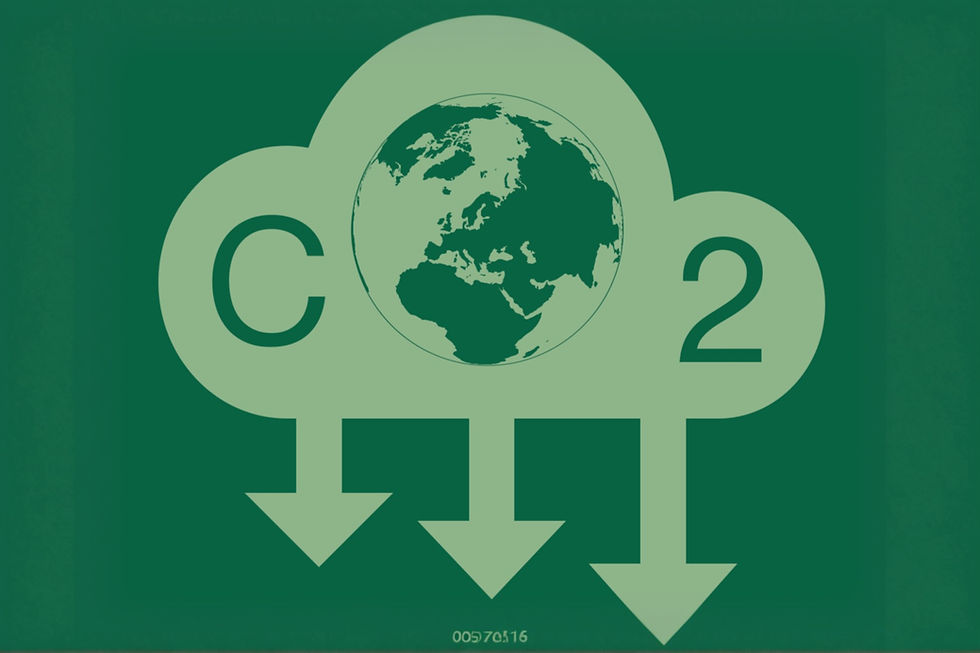Not in Isolation: Exploring the Intersection between Climate Change and Education
- Oct 15, 2023
- 3 min read
Updated: Oct 15, 2024
By Mehru Nisa Shahid

Climate change is often given significant attention in conversations and tends to be treated as an isolated issue, with little consideration for intersectionality within mainstream discourse. In my observation, the discourse within my country, Pakistan, focuses on various pressing social issues, yet climate change is low on the agenda. The reality is that climate change affects individuals’ daily lives deeply and deserves more attention.
In this policy report, I will discuss the impact of climate change on education— a fundamental human right that many worldwide are deprived of, and access remains a significant challenge for many. Education plays a decisive role in empowering individuals by providing them with information and knowledge to improve the world. It has allowed us to learn about climate change and discover practical solutions. Unfortunately, education systems worldwide have been disrupted by climate-related events, such as the floods in Pakistan, severely affecting people's lives.
Significance of Education in Addressing Climate Change
Education plays a pivotal role in addressing the climate change challenge. It raises awareness regarding the issue and equips individuals with the knowledge necessary to develop solutions. However, our education systems require significant transformation. One major issue is the lack of climate education training for teachers, and another is the absence of adequate representation of climate-related topics within the curriculum. Recognising these challenges, the UN Secretary-General's Transforming Education Summit underscores the need to overhaul education in response to the global climate and environmental crisis. Building on the groundwork laid by Education for Sustainable Development (ESD), the newly established Greening Education Partnership seeks to take cohesive and robust action. It aims to prepare every learner with the knowledge, skills, values, and attitudes required to address climate change and promote sustainable development. The partnership focuses on four action areas: greening schools, learning, capacity, and readiness. Countries are encouraged to embrace at least two of these components by 2030.
Empowering Marginalised Communities in the Fight Against Climate Change
Furthermore, empowering marginalised communities, particularly gender and ethnic minorities, is crucial to addressing climate change. These communities are often the most affected by climate impacts and possess valuable insights into tackling the issue. Solving climate change cannot be achieved in isolation from addressing concurrent issues like racial capitalism and patriarchy, which hinder the education and empowerment of marginalised individuals. Without addressing these challenges with an intersectional approach, we will continue living in a world marked by cruelty towards humanity and the planet.
A Call for Comprehensive Solutions
Exploring potential solutions to the educational challenges posed by climate change is crucial. In some regions, the effects of climate change have led to the suspension of education. For instance, in Pakistan, more than 3.5 million children were affected by floods, disrupting their education. Infrastructure damage, longer commutes to school, and uncertainty regarding school reopenings took a toll. The World Bank suggested that Pakistan adopt a resilient education system with district-level planning and disaster response strategies for floods and earthquakes. These are vital policy considerations.
However, these policy considerations often overlook the broader context of global climate injustice and the economic and political instability developing countries like Pakistan face. It's essential to consider the historical and political aspects of climate change.
Historically, the global north has been the primary contributor to greenhouse gas emissions responsible for climate change, disproportionately impacting the global south. Financial institutions in the global north have long funded carbon-intensive projects and companies contributing to global warming. Structural Adjustment Programs (SAPs) by the IMF have also been associated with environmental degradation, such as deforestation and air pollution. A recent study in Ghana revealed a substantial increase in deforestation during the post-adjustment period. This highlights how the short-term profitability focus of SAPs has negatively affected forests and contributed significantly to the climate change crisis.
All of this underscores that climate change policies cannot be one-size-fits-all solutions. Recommendations for global south countries need to account for the unjust global financial system. Developing countries called for climate justice at COP27, particularly in adaptation, loss, and damage funds. Recognising climate injustice is the first step, and the global north should acknowledge its historical contributions and provide aid to developing countries without onerous conditions. It is then on developing countries to fulfil their responsibilities in addressing climate change. To conclude, the issue of climate change and its link with education show that the climate change crisis can not be solved without considering the societal and global structural inequalities.



Comments